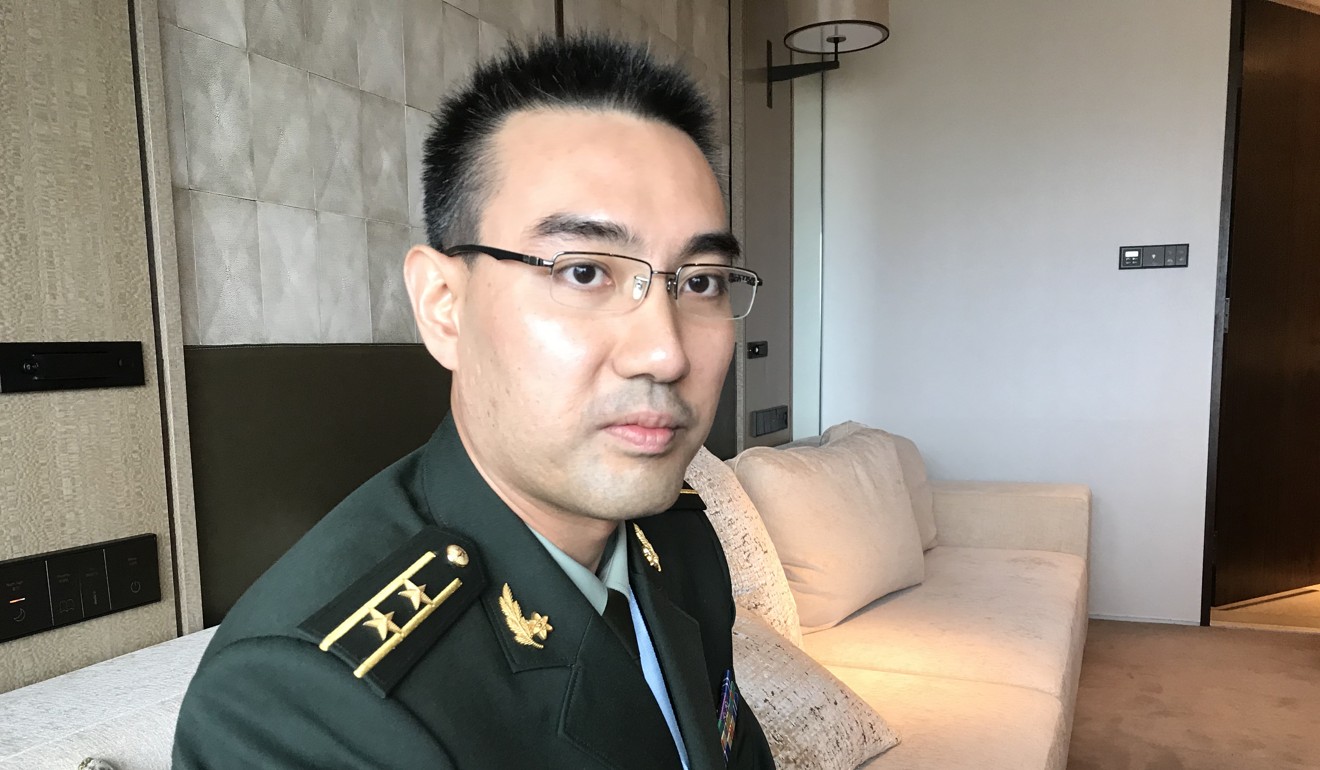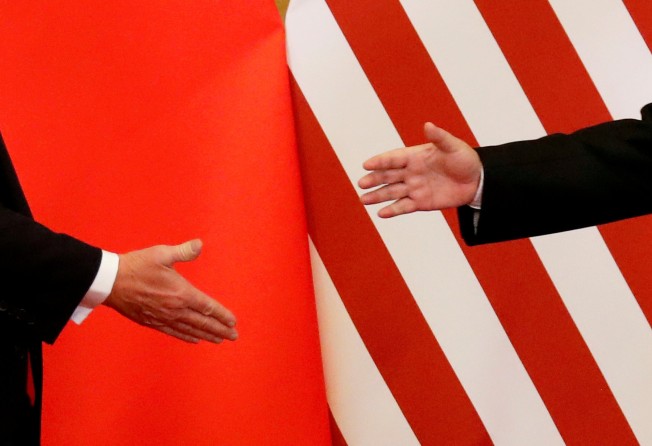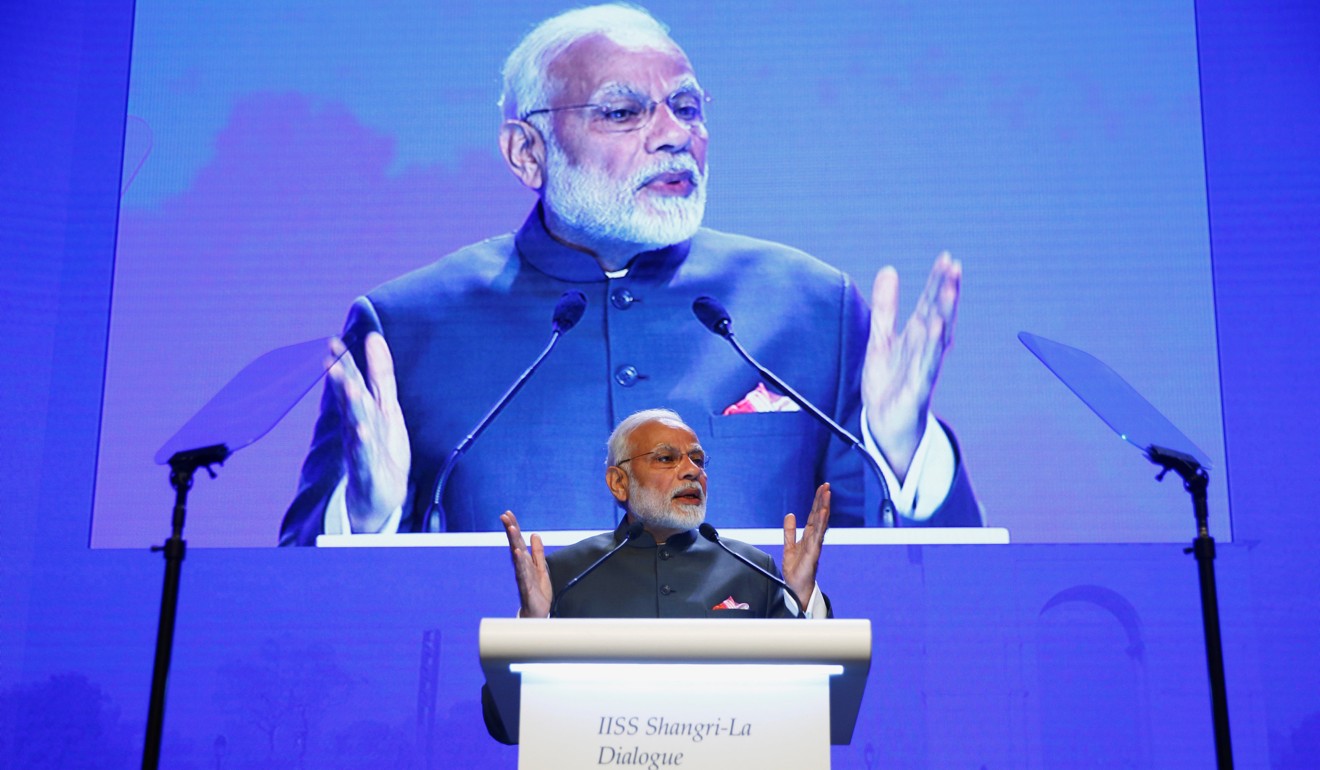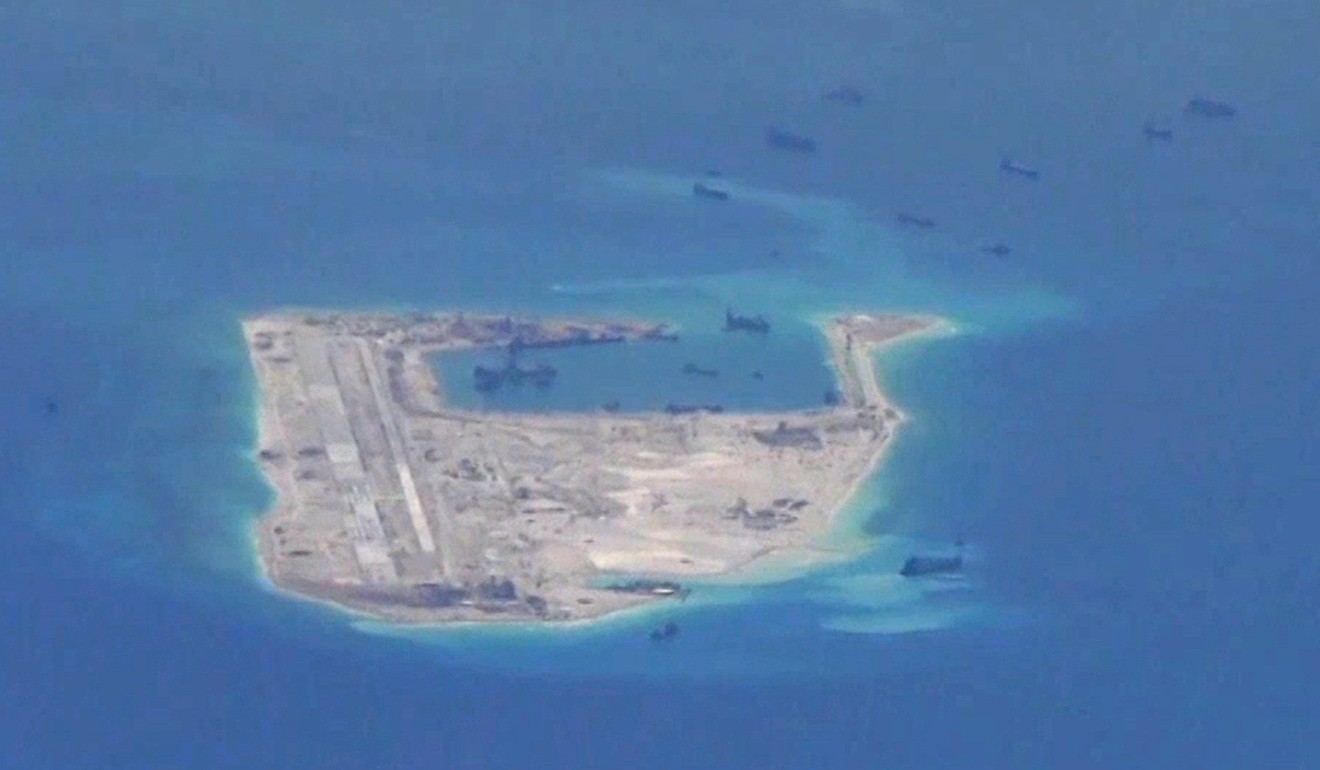
US ‘still needs Chinese help because one country can’t solve world’s problems alone’
Chinese delegate to IISS Shangri-La Dialogue in Singapore downplays recent disagreements over South China Sea, saying relations remain strong

Relations between the Chinese and American militaries remain strong despite their differences, a member of Beijing’s delegation said at a regional security forum on Friday, arguing that the US needed its support to tackle the biggest issues facing the world.
Lieutenant Colonel Zhang Chi, an associate professor at the Chinese National Defence University’s strategic advisory centre, downplayed concerns over the increasing rivalry between the two countries’ armed forces and recent disagreements over the South China Sea.
“Compared with the past, Sino-US military relations are currently much stronger,” Zhang told reporters ahead of the opening of the IISS Shangri-La Dialogue in Singapore on Friday.
“Since China is rising, the US will need more support from the Chinese side, because it’s impossible to just rely on a single nation to deal with all the existing global issues and crises.”

In the days leading up to the summit, US Secretary of Defence Jim Mattis said the US would continue to confront what Washington sees as China’s militarisation in the South China Sea.
The US military has also renamed its Pacific Command the Indo-Pacific Command – a sign of its broader strategic focus – and withdrew an invitation for the Chinese military to participate in the Rim of the Pacific exercises.
Lieutenant General Kenneth McKenzie, director of the Joint Staff, even suggested that the US military had the experience necessary to “take down” the artificial islands China has built to house military infrastructure in disputed areas of the South China Sea.
But when asked about McKenzie’s remarks, Zhang said only that it was normal to hear different views from the US government and military.
Indian Prime Minister Narendra Modi began proceedings at the summit on Friday with a speech highlighting India’s security ties with other nations in the region.
He said it was crucial for China and India to work together in trust and confidence, and be sensitive to each others’ interests.
Modi said stable relations between India and China were an “important factor for global peace and progress”.
He added: “Our cooperation is expanding. Trade is growing. And we have displayed maturity and wisdom, managing issues and ensuring our peaceful bond.”
However, India’s border disputes with China remain a source of friction between the two sides and last year their troops were involved in a lengthy stand-off on the Doklam plateau.

Liu Lin, an expert on maritime issues at China’s Academy of Military Sciences, said China remained hopeful that India would not join America’s planned Indo-Pacific quartet with Australia and Japan.
“The most important feature of the US Indo-Pacific strategy is to highlight India’s role, which is a major departure from its previous Asia-Pacific strategy,” Liu, who is also a PLA delegate to the summit, said.
“But India has a tradition of pursuing an independent and nonaligned foreign policy … It is also focusing more on economic development, so it may not want to be dragged into the Indo-Pacific strategy and confront China.”
Andrei Chang, editor-in-chief of Canadian-based magazine Kanwa Asian Defence, said India was being“very crafty” when dealing with regional security issues because New Delhi “doesn’t want to offend both Beijing and Washington”.
Modi also discussed at length the importance of its ties with Southeast Asian countries as part of its “Act East” policy, saying that India had “strong and growing” political, economic and defence partnerships.
He also warned against a return to the age of great power rivalries, saying that “will hold us all back”.

China’s delegation to the Singapore summit was relatively low-level and did not include any senior defence policymakers.
By contrast, in 2011 the party had been led by Liang Guanglie, the defence minister at the time.
Dr John Chipman, director general of the International Institute for Strategic Studies, the summit’s organiser, said he had visited Beijing three times since November, adding that China had been expected to send higher-ranking delegates.
But, just like last year, China’s delegation mainly consisted of military academics and was led by Lieutenant General He Lei, the vice-president of the Academy of Military Science.
“We still believe [this] is an important security dialogue for the region and is also a multilateral platform,” Yao Yunzhu, a Sino-US military expert at the academy, told reporters on the sideline.
“Maybe some will say that our delegation is a ‘low-ranking’ group … but the Chinese military will not withdraw from any dialogues. Keeping a voice and presence on different discussion platforms is very important to the PLA.”
Additional reporting by Liu Zhen